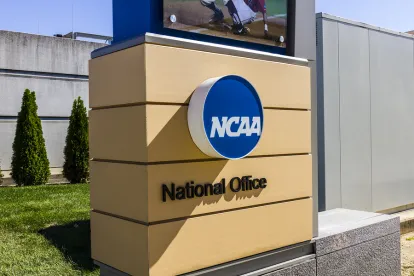At the tail end of the NCAA tournament, this year’s biggest sports upset may come from an unlikely source—the Supreme Court. In Wednesday’s oral arguments in NCAA v. Alston, Justices from both sides of the ideological aisle seemed uncharacteristically unified in their skepticism of the NCAA’s caps on the “education-related benefits” that colleges provide student athletes. And while the NCAA emphasized the “distinct character” of college sports and its hallmark amateurism, lawyers for the plaintiff athletes reminded the Court of the enormous salaries earned by many top college coaches.
The Alston case is not just a fight between our favorite college sports teams and the star athletes that have made millions for our alma maters—it is also a rare Supreme Court antitrust case that may have broader implications. At issue is a California federal court ruling, upheld by the Ninth Circuit, finding that the NCAA could not restrict benefits provided to players which relate to the athletes’ education. (The district court declined to conclude that the athletes could be paid fair-market compensation for their labor which did not relate to their education.) The NCAA appealed these rulings, arguing—with the support of the major athletic conferences—that its cap on payments to players promotes competition by providing sports fans a choice between college and professional sports. Relying on NCAA v. Board of Regents of University of Oklahoma, a 1984 case which involved an antitrust challenge to the NCAA’s plan to televise college athletics, the NCAA has claimed that its conduct is “clearly procompetitive.” In contrast, the athletes have taken issue with a system that requires significant player commitment, rakes in millions for schools, and pays million-dollar coaching salaries, yet seeks what the players call an outright exemption from federal antitrust laws in order to avoid paying athletes. The athletes claim that Board of Regents is not controlling and, nevertheless, the college sports landscape has changed drastically in the intervening decades.
Wednesday’s oral arguments revealed a skepticism of the NCAA’s arguments from some of the Court’s most business-friendly justices—including Clarence Thomas, Samuel Alito, Amy Coney Barrett and Brett Kavanaugh. The NCAA’s primary argument is that its amateurism rules are essential to making college sports popular with consumers “as a product distinct from professional sports.” Justice Thomas, however, called it “odd” that college coaches, just like the students they coach, participate in the “amateur ranks,” yet salaries for coaches have “ballooned.” Justice Barrett—who last year was a law professor at Notre Dame, which has one of the largest and most profitable athletic programs in the country—summarized the NCAA’s argument as: “consumers love watching unpaid people play sports.” Justice Alito decried a system where athletes are “recruited, they’re used up, and then they’re cast aside.” Yet the strongest criticism may have come from Justice Kavanaugh, who noted that the “antitrust laws should not be a cover for exploitation of the student-athletes” and stated that the Board of Regents decision “really was from a different era.” Chief Justice John Roberts, who has cast the deciding vote on recent high profile cases, seemed concerned that this relatively narrow challenge to “education-related benefits” may lead to broader attacks on the NCAA’s amateurism rules, analogizing the case to a game of Jenga: “You pull out one log and then another and everything’s fine” until “all of a sudden, the whole [thing] comes crashing down.” Justice Steven Breyer also worried about judicial micromanagement of college sports and noted that the Court’s ruling on this issue could impact other areas of antitrust as well.
While the Court’s ultimate decision remains to be seen, the oral arguments suggested a willingness to rule in favor of, at minimum, incremental changes in favor of student athletes. Could the justices’ statements also foreshadow bigger changes in antitrust law generally? In opinions penned before joining the Supreme Court, Justice Kavanaugh critiqued older antitrust cases as “relics” with “loose” or “free-wheeling” analysis, which he claims have not “stood the test of time” and should be pushed to the “jurisprudence sidelines.” And during oral arguments in Alston, Kavanaugh dismissively referred to the 1984 Board of Regents case as being “from a different era.” While Alston may not be the case that overrules older antitrust precedent, at least some of the Court seems willing to push college sports—and perhaps antitrust law more generally—towards a more “modern approach.”




 />i
/>i

